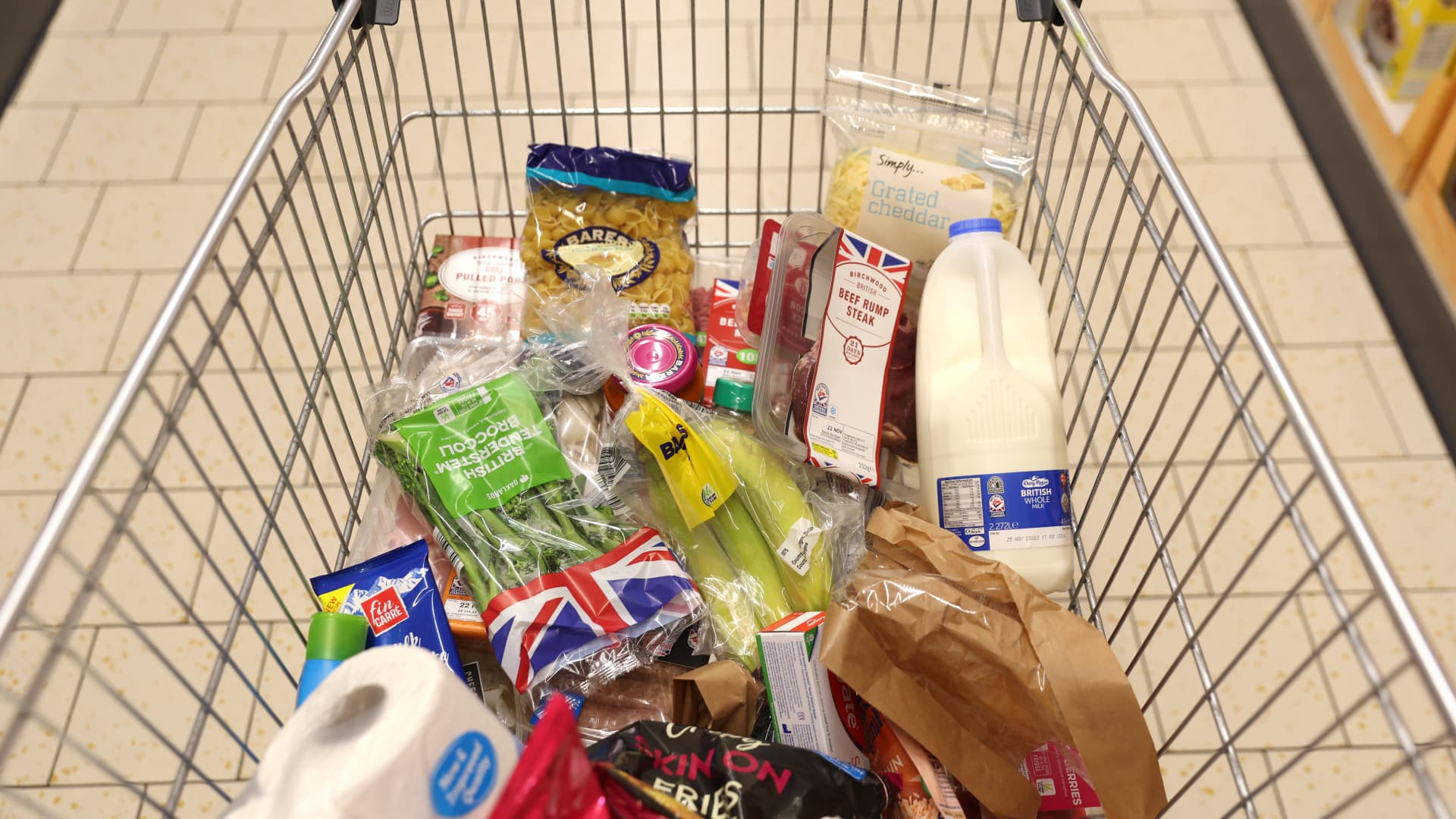
LONDON — U.K. inflation came in slightly below expectations at 10.7% in November, as cooling fuel prices helped ease price pressures, though high food and energy prices continued to squeeze households and businesses.
Economists polled by Reuters had projected an annual increase in the consumer price index of 10.9% in November, after October saw an unexpected climb to a 41-year high of 11.1%. On a monthly basis, the November increase was 0.4%, down from 2% in October and below a consensus estimate of 0.6%.
related investing news

The Office for National Statistics said the largest upward contributions came from “housing and household services (principally from electricity, gas, and other fuels), and food and non-alcoholic beverages.”
The largest downward contributions over the month came from “transport, particularly motor fuels, with rising prices in restaurants, cafes and pubs making the largest, partially offsetting, upward contribution.”
The Bank of England will announce its next monetary policy move on Thursday. It is widely expected to raise interest rates by 50 basis points, as it juggles sky-high inflation and an economy that policymakers say is already in its longest recession on record.
The country faces widespread industrial action over the Christmas period, as workers strike to demand pay rises closer to the rate of inflation and better working conditions.
The independent Office for Budget Responsibility projected that the U.K. will suffer its largest fall in living standards since records began, as real household income is expected to decline by 4.3% in 2022-23.
U.K. Finance Minister Jeremy Hunt last month announced a sweeping £55 billion ($68 billion) fiscal plan, including a slew of tax rises and spending cuts, in an attempt to plug a substantial hole in the country’s public finances.
A positive step, but risks remain
While the dip in Wednesday’s figures is a step in the right direction, the persistent problem of rising food prices and household energy bills remains a thorn in the side of the British economy, noted Richard Carter, head of fixed interest research at Quilter Cheviot.
However, Carter suggested inflation may finally be passing its peak, after the U.S. also posted a better-than-expected CPI print on Tuesday.
“Temperatures have taken a sharp dive in the last week or so, and the demand for gas will no doubt have increased as people are forced to heat their homes,” Carter added.
“As the autumn had been rather mild, we will only now begin to see the real impact of higher energy bills. While the government support remains in place for now, any changes made once the April deadline is reached could have a knock-on effect on inflation.”
The Bank of England faces a tricky task in trying to drag inflation back towards its 2% target while remaining cognizant of a weakening economy. This was evident in the latest U.K. labor market data earlier this week, which showed an uptick in both unemployment and wage growth.
“While inflation is falling, it remains well ahead of wages, and we are heading into a new winter of discontent with strikes concentrated in the unionised public sector and former nationalised industries as a result,” Carter said.
The market is pricing a 50 basis point interest rate hike from the Bank on Thursday, taking the benchmark rate to 3.5%. Policymakers have signaled a potential slowing of the pace of hikes in 2023. However, inflation remains well above target.
“The Chancellor’s Autumn Statement in November helped to settle the waters following months of significant turbulence, but inflation remains far above the Bank’s 2% target, which means there is still a long way to go yet,” Carter said.
“A rapid fall in inflation is highly unlikely, but it is positive to see it finally moving in the right direction.”
This is a breaking news story, please check back later for more.